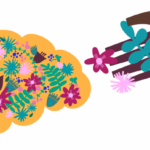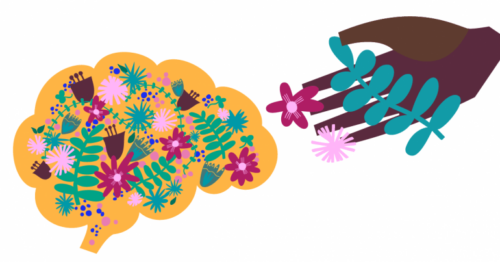Tapering Off Alcohol How To Wean Off Safely
Before you start your detox, ensure you have enough alcohol on hand to last you a few days. Always keep some extra alcohol available in the event you experience severe withdrawal symptoms. The last thing you want is to run out of booze at three in the morning thinking you’re about to have a seizure. This can be easier and safer than quitting cold turkey. It can help you reach goals and can minimize some of the unpleasant and severe symptoms of alcohol withdrawal.
Who Can Benefit From Tapering Their Alcohol Intake
So I mixed a small drink and was able to sleep for somewhat 2 hours. Seemed like they were written by sober people who never had to taper themselves or were never big alcoholics. In that fucked up mental state I found the guides too wordy and impossible to comprehend, on top of being fantasy land bullshit. You could probably also make this work by just mixing your liquor drinks weaker and weaker. But you have to be careful and measure properly so you’re not under-pouring or over-pouring. If you keep drinking too much then only buy enough for 1 day at a time.
Smaller drinks with a higher percentage of alcohol are stronger than the same size drink containing a lower-proof liquor. Alcohol also inhibits the glutamate receptor–which is the cause of staggering, slurring, and general https://www.inkl.com/news/sober-house-rules-a-comprehensive-overview interference with muscular coordination. Glutamate receptor rebound also appears to contribute to the withdrawal symptoms described above.
How Alcohol Addiction Is Like an Abusive Relationship
- Typically, quitting cold turkey from a 12-beer-a-day habit is going to be more stressful than tapering off slowly.
- The problem at this stage with me is that I am an alcoholic, have been through the DTs before, and my rebound anxiety is fucking horrifying.
- Everything you say is confidential and you’re paying them to HELP you.
- If you’re not sure if cold turkey or tapering is right for you, you can join the Monument Community to hear from others who have confronted similar questions.
These can include improved liver function, better sleep quality, enhanced cognitive function, and a lower risk of developing alcohol-related diseases. As your body detoxifies and heals, you may experience increased energy levels and overall well-being. I’ve also heard of people successfully stopping by reducing their moderate drinking (8-10 a day) to 5-6 a day for a couple days, and then quitting entirely.
- As you navigate this question, it can be helpful to think about how you typically prefer to approach change.
- You can continue your taper the next day from whatever point you think is appropriate.
- Tapering alcohol may be uncomfortable, and there may be subconscious triggers that stimulate the desire to drink alcohol.
- Someone should typically only direct taper if their drink of choice is beer with a low alcohol percentage.
- Unfortunately, there’s little to no evidence that tapering off reduces the effects of alcohol withdrawal, some of which can be severe or even life-threatening.
- This is my first Reddit post, but have read quite a lot of posts on alcohol tapering/Detox/Withdrawl.
Alcohol tapers are strategies to stop drinking by slowly decreasing the amount of alcohol a person consumes. It is also very important when tapering off to fight dehydration and to replenish lost vitamins. If you go through a medical detox the people they may sober house rehydrate you with an IV and may also give you vitamin shots. If you are doing a self detox be sure to drink lots and lots of fluids and to take vitamin pills.
Rehab Resources
Engage in healthy coping mechanisms like exercise, mindfulness practices, or speaking with a therapist to manage cravings effectively. If you or someone you know needs help detoxing from alcohol, The Recovery Village Ridgefield Drug and Alcohol Rehab is here for you. Contact us today to speak with a representative and begin on the road to lasting addiction recovery.
Alcohol Tapering Guide
Seeking help as early as possible during the withdrawal process is the best way to stay safe as you cleanse your body of alcohol. You may experience alcohol withdrawal symptoms when you quit drinking alcohol. This can happen whether you’re quitting alcohol cold turkey or tapering. For those at risk for severe withdrawal symptoms, medically-supervised detox is often the safest choice for beginning their sobriety or moderation journey. Others may discover after consulting with a doctor that it’s safe for them to quit alcohol cold turkey if they choose to. However, they may still decide that tapering down feels most achievable for them.
Alcohol Withdrawal Timeline
The rest of this guide addresses pre-planning, withdrawal symptoms, planning, creating a taper schedule, and the next steps after a taper. I’d encourage you to read them all, but at the very least, please read the sections on withdrawal symptoms and the schedule itself. My first recommendation is to seek professional help at an inpatient rehab facility, a dedicated detox center, or, in severe cases, the emergency room. It’s a good idea to talk with a medical professional before you begin a taper.
How Long Does it Take to Wean Off Alcohol?
Your addicted brain may use this as an excuse to increase your dosage. You may feel you’re in control of your addiction, and that it’s okay to have a cheat day and drink a little more. Easier said than done, but if you go down this path, you’ll be right back where you started. Remember, you probably just felt horrible a few days earlier.
- I was tired since I didn’t get a good sleep for 24 hours…
- Although I didn’t experience any seizures, I certainly wouldn’t recommend it.
- The Recovery Village Ridgefield medical detox center in Vancouver, WA, is a fully staffed rehab facility designed to help you wean off alcohol in comfort.
- However, quitting cold turkey or tapering is not advisable for people with an AUD.
- A full continuum of care treating addiction and mental health through an evidence-based approach, relapse prevention, and holistic healing with beach activities.
- Providers who advertise with us must be verified by our Research Team and we clearly mark their status as advertisers.
Along with withdrawal symptoms, it may be even more difficult to cut back or taper your alcohol use if you struggle with an alcohol use disorder (AUD). AUD makes it difficult to control alcohol use — it may seem like the alcohol is controlling you. A taper may not be right for you if you frequently drink more than you intended, try to cut back but cannot or feel that your alcohol use is affecting your life. People with AUD may be unable to quit drinking alcohol on their own or have attempted to quit before and relapsed. If you’ve been drinking heavily for a long time and think you might experience withdrawal symptoms, it’s best to talk with a medical professional before you begin a taper. They can help you decide if tapering is the safest option for you.
It’s important to seek urgent medical care if you experience any of these symptoms. Most people experience the most severe symptoms from about 36–72 hours after stopping drinking. Alcohol withdrawal is potentially fatal, especially for people with an alcohol addiction.
Tapering off is a standard medical practice for many other drugs. Telling people to taper with lite beer when they drink 750ml liquor a day is unrealistic and not based on science. Pretty sure the ER doc knows better than some bullshit web site written by sober people. Taper is a slow reduction, not massive sudden cut back.
With these things in mind, it’s important to weigh the pros and cons of tapering your alcohol use to make a fully informed decision. If your health, wellness, and even life may be at risk, quitting alcohol should only be attempted with the help of a medical professional. Research has shown that professional help improves your ability to overcome an addiction to alcohol or cut back if you have found it difficult. The most common research technique among those surveyed is an internet search (61%), followed by asking a doctor or medical professional (55%). If you’re relying on internet searches to find potential treatment centers, make sure to ask these ten questions to find a licensed facility that can meet your needs.








